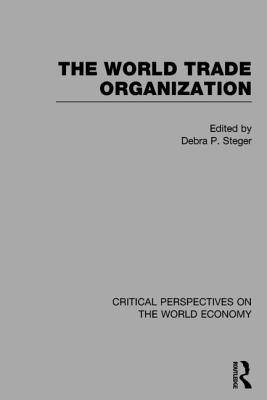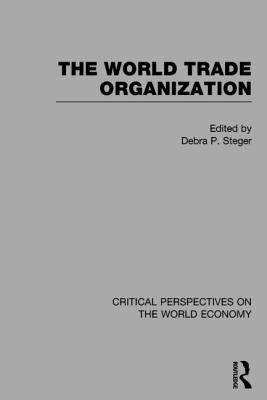
- Afhalen na 1 uur in een winkel met voorraad
- Gratis thuislevering in België vanaf € 30
- Ruim aanbod met 7 miljoen producten
- Afhalen na 1 uur in een winkel met voorraad
- Gratis thuislevering in België vanaf € 30
- Ruim aanbod met 7 miljoen producten
The World Trade Organization
Omschrijving
With a membership of 160 countries, the World Trade Organization (WTO) is the international organization with responsibility for the global rules of trade between nations. Its stated principal function is to ensure that trade flows as smoothly, predictably, and freely as possible. Established almost twenty years ago, the agreements negotiated under its auspices and, indeed, its very existence have been the source of tremendous controversy and debate.
Edited by a leading scholar in the field, and former Director of the Appellate Body Secretariat of the WTO, this new Routledge collection brings together in five volumes the very best scholarship on the WTO from economists, academics, lawyers, and other thinkers to examine its history (including its origins in the General Agreement on Tariffs and Trade). The set also makes available cutting-edge research about the fundamental principles on which the organization is based and explores the implications of the WTO's policy and practice for domestic regulation and the sovereignty of individual states. The final two volumes examine the role of the WTO in dispute settlement and discuss the challenges for the future, including relating to the role of developing countries, preferential trade agreements as well as the legitimacy and governance of the organization.
With an introduction, newly written by the editor, providing her own unique perspective, World Trade Organization is an essential collection destined to be valued by scholars, students, government officials, and practitioners as a vital research resource.
Specificaties
Betrokkenen
- Uitgeverij:
Inhoud
- Aantal bladzijden:
- 2149
- Taal:
- Engels
- Reeks:
Eigenschappen
- Productcode (EAN):
- 9780415364225
- Verschijningsdatum:
- 27/06/2014
- Uitvoering:
- Boek
- Afmetingen:
- 156 mm x 233 mm
- Gewicht:
- 4013 g

Alleen bij Standaard Boekhandel
Beoordelingen
We publiceren alleen reviews die voldoen aan de voorwaarden voor reviews. Bekijk onze voorwaarden voor reviews.










